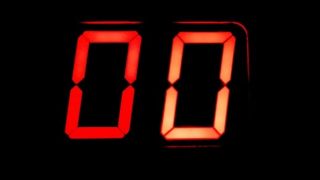Having the ability to use punctuation marks with ease, and perhaps without consulting Dr. Google, entails advanced linguistic literacy. Being able to appropriately employ words that are commonly misused and misinterpreted suggests the same idea. Since these two areas are two of the most crucial parts in language application, it is essential to discuss them …
English
There are some expressions that you come across time and again, yet you aren’t sure what they exactly mean. For me, I was never sure what “by the skin of one’s teeth.” It just never made sense to me. How can someone escape “by the skin of their teeth”? Then, I looked into it and …
The rules in English can be confusing. For every concept you think you have a handle on, countless exceptions confound things. And the bigger problem is that these exceptions can be erratic, with no discernible pattern to speak of. For instance, when it comes to the past tense, while the past of “side” is “sided,” …
There are many ways of using the English language, and these vary from place to place. Scotland, for example, has a lot of unique expressions due to the common use of Scottish Gaelic and Scots in the country. Today we’ll take a look at one Scottish phrase, “Dinna fash.” What does “dinna fash” mean? …
Have you ever wondered why and how on earth can a word be flanked with its identical twin in a sentence? If you’ve questioned whether or not this type of phrasal construction is grammatically-correct, then you must be a grammar stickler! Kidding aside, if you’ve landed on this post searching for some answers, then that …
Jargon is everywhere, no matter what field of work you’re in or what your hobbies are. Sometimes, though, common jargon words can have a problematic origin. As an example, let’s look at the phrase “ricer car,” commonly used in the car tuning community. What does “ricer car” mean? The phrase “ricer car” is used …
Plenty of expressions derive their meaning from the context within which they are used. For instance, when you say something as simple as “sure,” you might be saying more than one thing. On the one hand, you might be simply agreeing with the person you’re talking to, and there’s no reason not to take you …
Some people would like you to think that the rules of English grammar are set in stone. They want you to follow the rules, and pretend that grammar has always been the way they say it is. You might even hear them say that you’re speaking incorrectly, even if you’ve been saying something a certain …
The flexibility of language as a communication device allows humans to convey information either colloquially or formally. While colloquialism emanates a tone of friendliness, formalistic speech entails more objectivity, logic, and conviction. Hence, the formal language is preferable for record-keeping, such as in historical texts, as well as in pedagogical practices. Let’s take a closer …









